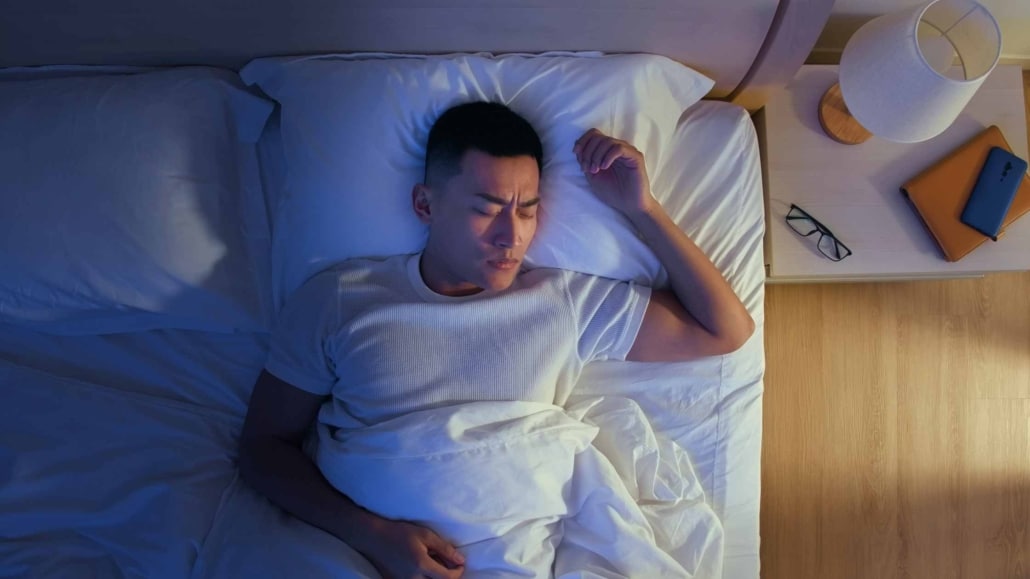Last Updated on September 18, 2024 by
When you’re well-rested, your energy and enthusiasm shine through in every class you teach as a group exercise instructor.
However, your sleep pattern can often take a back seat when you’re constantly juggling early morning workouts and evening classes.
Many instructors are caught in this balancing act, leading to poor sleep habits that prevent them from bringing their best selves to their classes.
But quality sleep isn’t out of reach. You can improve your rest and elevate your teaching with the right strategies.
Continue reading to find out more!
Table of Contents
ToggleKey Takeaways
- Morning sunlight exposure resets your body clock and improves sleep quality
- A post-class wind-down routine helps transition from high energy to restfulness
- Optimising your sleep environment enhances physical recovery and mental relaxation
- Managing evening class prep wisely prevents sleep schedule disruptions
- Implementing a digital curfew minimises blue light exposure before bed
7 Steps to Better Sleep for Group Exercise Instructors

1. Start Your Day with Natural Light
Want to reset your body clock and bring your best self to your classes? Then start your day with a dose of sunshine!
Exposure to natural light first thing in the morning sends a powerful signal to your body that it’s time to wake up and be alert.
It helps you feel more energised for your morning classes and prepares you for better sleep at night.
Even on cloudy days, outdoor light is much more powerful than indoor lighting, so make it a priority to get outside, even briefly.
2. Create a Post-Class Wind-Down Routine
Finishing a high-energy class at 8 PM often leaves instructors feeling too wired to sleep.
In this case, it’s important to set a clear transition between “instructor mode” and “sleep mode”.
A sample routine might include:
- Immediately after class: Taking a cool shower to lower body temperature
- 1 hour before bed: Dimming the lights and doing gentle stretching or yoga
- 30 minutes before bed: Practicing meditation or deep breathing exercises
The goal is to gradually lower energy levels, signalling to the body that it’s time to rest.
3. Optimise Your Sleep Environment
After long days of demonstrating exercises, your body deserves optimal support for restorative sleep.
A great place to start is keeping your sleeping environment cool. Our bodies naturally cool down as we prepare for sleep, so a cooler room can prime you for a great night’s sleep.
Another great tip is to use blackout curtains or an eye mask to block out light, especially if you’re trying to sleep when it’s still light outside or if you live in an area with lots of artificial light at night.
If you live in a noisy area, consider using white noise or earplugs to create a peaceful atmosphere and prevent nighttime disturbances.
Remember, your sleep environment plays a crucial role in the quality of your rest, so it’s worth investing time and effort to get it right.
4. Manage Evening Class Preparations Wisely
Late-night class planning is often a surefire way to overstimulate yourself when you’re meant to be winding down.
Whether you’re finalising your playlist, reviewing your workout sequence, or prepping equipment lists, you should set a work cut-off time at least an hour before bed to help prime your body for sleep.
A helpful technique is to write down any lingering thoughts or to-dos for the next day before bed (in a notepad rather than on a digital device!).
“Brain dumping” can help quiet a busy mind, setting you up perfectly for a great night’s sleep instead of worrying about tomorrow’s tasks.
So be sure to give it a try!
5. Implement a Digital Curfew
The struggle of “one last Instagram check” turning into an hour of scrolling through class inspiration is all too familiar.
The thing is, blue light emitted by screens can suppress melatonin production, making it harder for you to fall asleep.
Implementing a “no-screens” rule 1-2 hours before bed is a great way to prevent this, and it can be the difference between a great night’s sleep, and one spent tossing and turning.
Alternative evening activities you can try include:
- Reading a book (perhaps some fitness literature)
- Gentle stretching or foam rolling to release tension from the day’s classes
- Journaling about teaching experiences or brainstorming new class ideas (again, on paper, not a screen!)
6. Be Mindful of Your Caffeine Intake
That pre-class espresso might be your bestie, but it could be your sleep’s worst enemy if consumed too late in the day.
A good rule of thumb? Cut out caffeine after 2 p.m. to minimise its impact on your sleep.
Don’t forget about hydration, though. Proper fluid intake significantly boosts your energy levels and sleep quality.
Keep that water bottle handy before, during, and after your classes. Your body (and your sleep) will thank you!
7. Practice Sleep Consistency Despite Varying Schedules
Maintaining a consistent sleep schedule isn’t always easy, particularly when teaching early morning or late evening classes – but it’s important for long-term sleep health.
Aim to go to bed and wake up roughly the same time each day, even on your days off, as doing so helps to regulate the body’s internal clock.
During weeks with intensive training periods or irregular class schedules, gradual adjustment is key.
For upcoming early classes, shifting your bedtime to 15 minutes earlier each night for a few days before them can ease the transition.
Your Action Plan: From Zzz’s to Teaching Superstar
Ready to prioritise your sleep and take your classes to the next level?
Remember, change doesn’t happen overnight. Start by choosing one strategy to focus on this week. Pay attention to how it affects your teaching energy and overall well-being.
As you get comfortable with one change, gradually add more strategies to your routine.
Improving your sleep quality isn’t just about feeling better – it’s about being the best instructor you can be.
So, which sleep strategy are you tackling first? Remember, every step towards better sleep is a step towards more energetic, inspiring classes.


